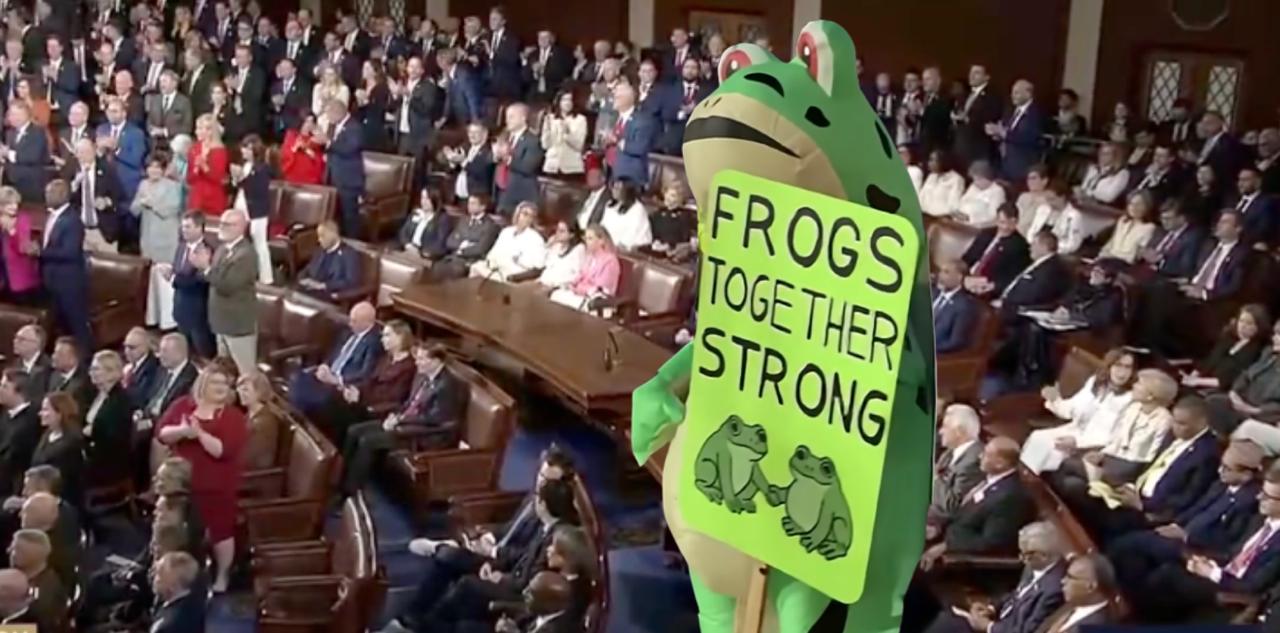Saying the “expansive regulatory state encouraged by Chevron deference has undermined our system of government, overburdening our citizenry and threatening to overwhelm our Founders’ system of checks and balances,” members of House committees with oversight over the vast federal bureaucracy have requested agencies to provide lists of existing and pending regulations that were upheld or could be defended under the 40-year-old legal precedent struck down by the Supreme Court June 28.
Under Chevron deference, courts were instructed to defer to federal agencies’ interpretation of ambiguously worded laws passed by Congress. The doctrine allowed unelected and unaccountable bureaucrats to determine how much power their respective agencies could wield, so long as their interpretations were “reasonable.” That ended with the court’s 6-3 ruling in Loper Bright Enterprises v. Raimondo, and now House lawmakers are letting the entrenched bureaucracy know that times have changed.
In letters sent July 9-11 to 43 federal agencies and departments, lawmakers, spearheaded by Rep. James Comer (R-Ky.), chairman of the House Committee on Oversight and Responsibility, left little doubt that they expect agencies to play by the new set of rules. Recipients ranged from the high-profile Environmental Protection Agency (EPA) and the National Labor Relations Board, along with the departments of treasury, energy, defense, labor, justice, and education, to the more obscure Pension Benefit Guaranty Corporation and the National Credit Union Association.
Whether the letters were sent to the high and the mighty or to smaller operations, their wording was roughly the same, suggesting the action was well coordinated.
Typical of the information sought is found in a July 9 letter to Energy Secretary Jennifer Granholm from Comer and House Natural Resources Committee Chairman Bruce Westerman (R-Ark.). Granholm was asked to turn over a list of all pending judicial challenges to final agency rules that may be impacted by the Court’s Loper Bright decision; a list of all agency rules not yet challenged in court but may be impacted by the Court’s Loper Bright decision if they are so challenged; and a list of all pending agency rulemakings in which the agency is relying on an agency interpretation of statutory authority that might have been eligible for Chevron deference prior to the Court’s decision in Loper Bright.
The Biden administration staunchly defended Chevron deference before the high court and is among the losers in one of the most consequential rulings handed down in decades, a point not lost on House GOP lawmakers.
“Perhaps no other administration has gone as far as President Biden’s to found sweeping and intrusive agency dictates on such questionable assertions of agency authority,” Comer and Westerman wrote, referring to the abuse made possible by Chevron deference. “The Biden administration has promulgated far more major rules, imposing far more costs and paperwork burdens, than either of its predecessor administrations.”
“Many of these rules – such as those promulgated to impose President Biden’s climate, energy, and Environmental, Social, and Governance (ESG) agendas – have been based on aggressive interpretations of statutes enacted by Congress years and even decades ago, before many issues against which the Biden administration has sought to deploy them were even imagined,” the two congressmen added.
In seeking such lists from Granholm and other department and agency heads throughout the bureaucracy, Comer and his colleagues are asking nothing less than the surrender of information that both sides know will lead to the weakening of the administrative state. Once turned over, the lists will provide inviting targets for those adversely affected by agency actions to challenge those rules in court, citing the demise of Chevron deference.
The entrenched bureaucracy’s willingness to relinquish power it has accumulated over decades will largely depend on the outcome of this fall’s election. It will determine how much pressure the executive branch and Congress will bring to bear beginning next year to force agency compliance with the Supreme Court’s decision.
In the meantime, regulatory agencies — in a time-honored Washington tradition — are likely to drag their feet in responding to the letters Comer and his colleagues have sent.
Bonner Russell Cohen, Ph. D., is a senior policy analyst with the Committee for a Constructive Tomorrow (CFACT).
Under Chevron deference, courts were instructed to defer to federal agencies’ interpretation of ambiguously worded laws passed by Congress. The doctrine allowed unelected and unaccountable bureaucrats to determine how much power their respective agencies could wield, so long as their interpretations were “reasonable.” That ended with the court’s 6-3 ruling in Loper Bright Enterprises v. Raimondo, and now House lawmakers are letting the entrenched bureaucracy know that times have changed.
In letters sent July 9-11 to 43 federal agencies and departments, lawmakers, spearheaded by Rep. James Comer (R-Ky.), chairman of the House Committee on Oversight and Responsibility, left little doubt that they expect agencies to play by the new set of rules. Recipients ranged from the high-profile Environmental Protection Agency (EPA) and the National Labor Relations Board, along with the departments of treasury, energy, defense, labor, justice, and education, to the more obscure Pension Benefit Guaranty Corporation and the National Credit Union Association.
Whether the letters were sent to the high and the mighty or to smaller operations, their wording was roughly the same, suggesting the action was well coordinated.
Typical of the information sought is found in a July 9 letter to Energy Secretary Jennifer Granholm from Comer and House Natural Resources Committee Chairman Bruce Westerman (R-Ark.). Granholm was asked to turn over a list of all pending judicial challenges to final agency rules that may be impacted by the Court’s Loper Bright decision; a list of all agency rules not yet challenged in court but may be impacted by the Court’s Loper Bright decision if they are so challenged; and a list of all pending agency rulemakings in which the agency is relying on an agency interpretation of statutory authority that might have been eligible for Chevron deference prior to the Court’s decision in Loper Bright.
The Biden administration staunchly defended Chevron deference before the high court and is among the losers in one of the most consequential rulings handed down in decades, a point not lost on House GOP lawmakers.
“Perhaps no other administration has gone as far as President Biden’s to found sweeping and intrusive agency dictates on such questionable assertions of agency authority,” Comer and Westerman wrote, referring to the abuse made possible by Chevron deference. “The Biden administration has promulgated far more major rules, imposing far more costs and paperwork burdens, than either of its predecessor administrations.”
“Many of these rules – such as those promulgated to impose President Biden’s climate, energy, and Environmental, Social, and Governance (ESG) agendas – have been based on aggressive interpretations of statutes enacted by Congress years and even decades ago, before many issues against which the Biden administration has sought to deploy them were even imagined,” the two congressmen added.
In seeking such lists from Granholm and other department and agency heads throughout the bureaucracy, Comer and his colleagues are asking nothing less than the surrender of information that both sides know will lead to the weakening of the administrative state. Once turned over, the lists will provide inviting targets for those adversely affected by agency actions to challenge those rules in court, citing the demise of Chevron deference.
The entrenched bureaucracy’s willingness to relinquish power it has accumulated over decades will largely depend on the outcome of this fall’s election. It will determine how much pressure the executive branch and Congress will bring to bear beginning next year to force agency compliance with the Supreme Court’s decision.
In the meantime, regulatory agencies — in a time-honored Washington tradition — are likely to drag their feet in responding to the letters Comer and his colleagues have sent.
Bonner Russell Cohen, Ph. D., is a senior policy analyst with the Committee for a Constructive Tomorrow (CFACT).





